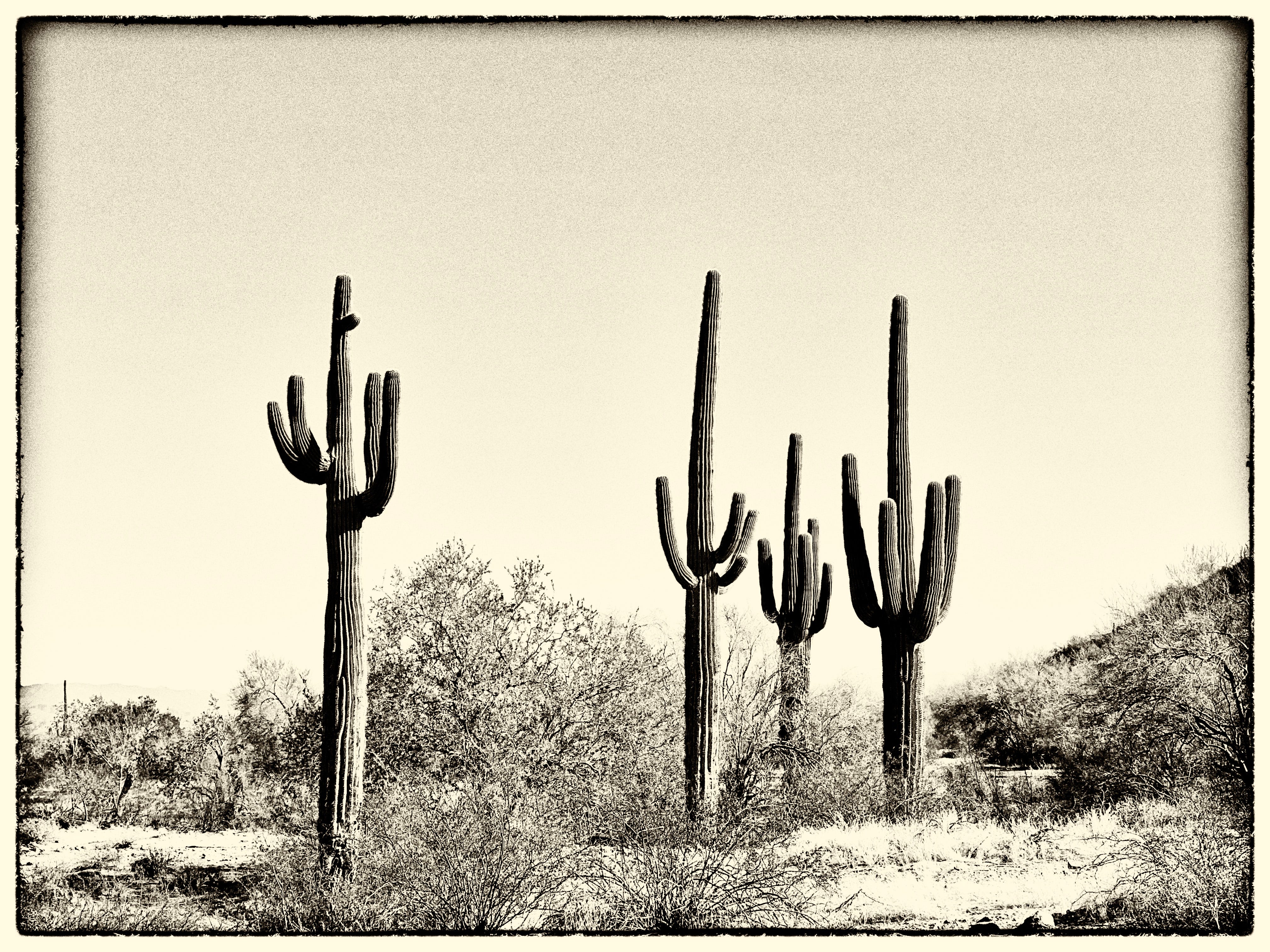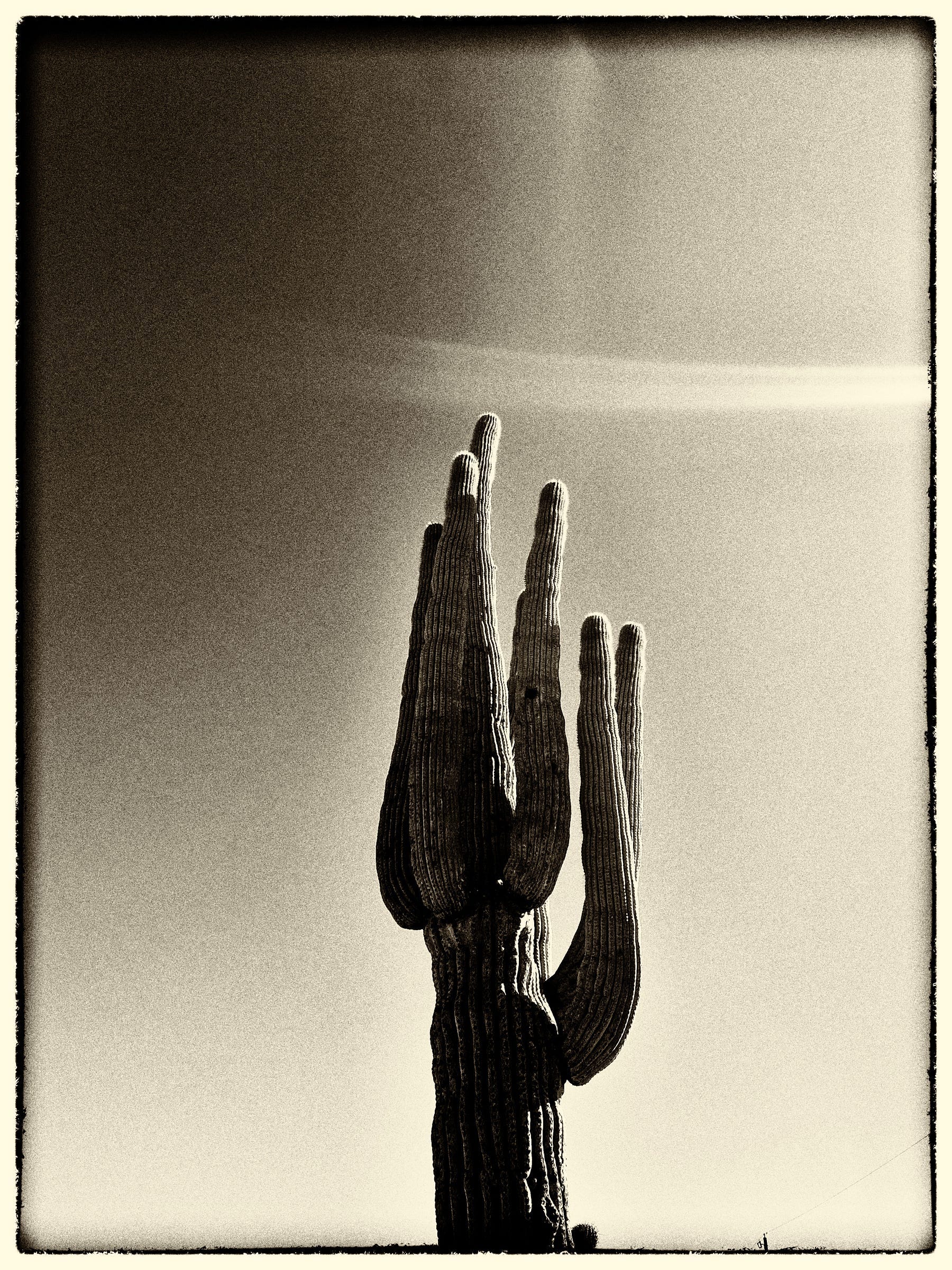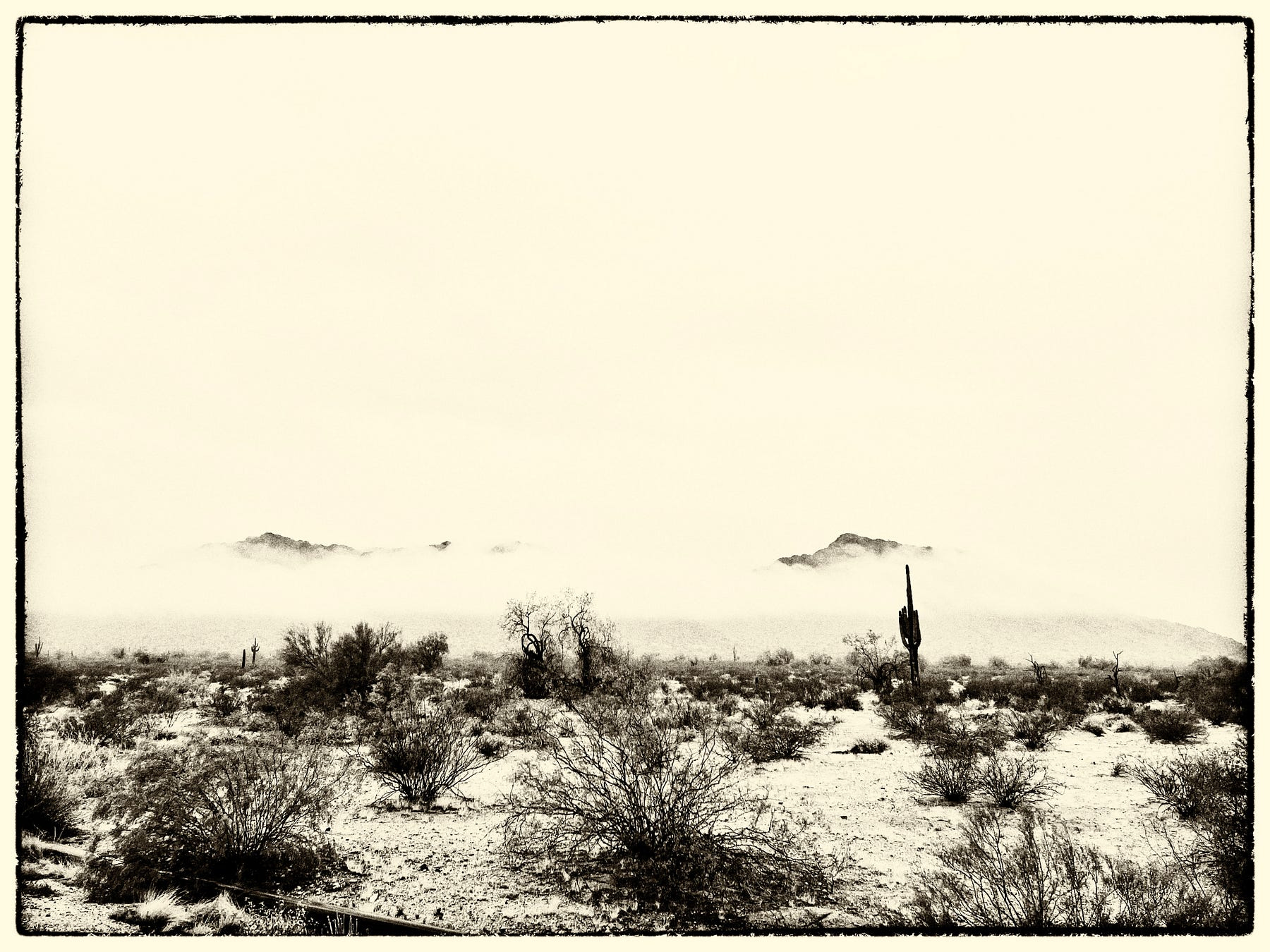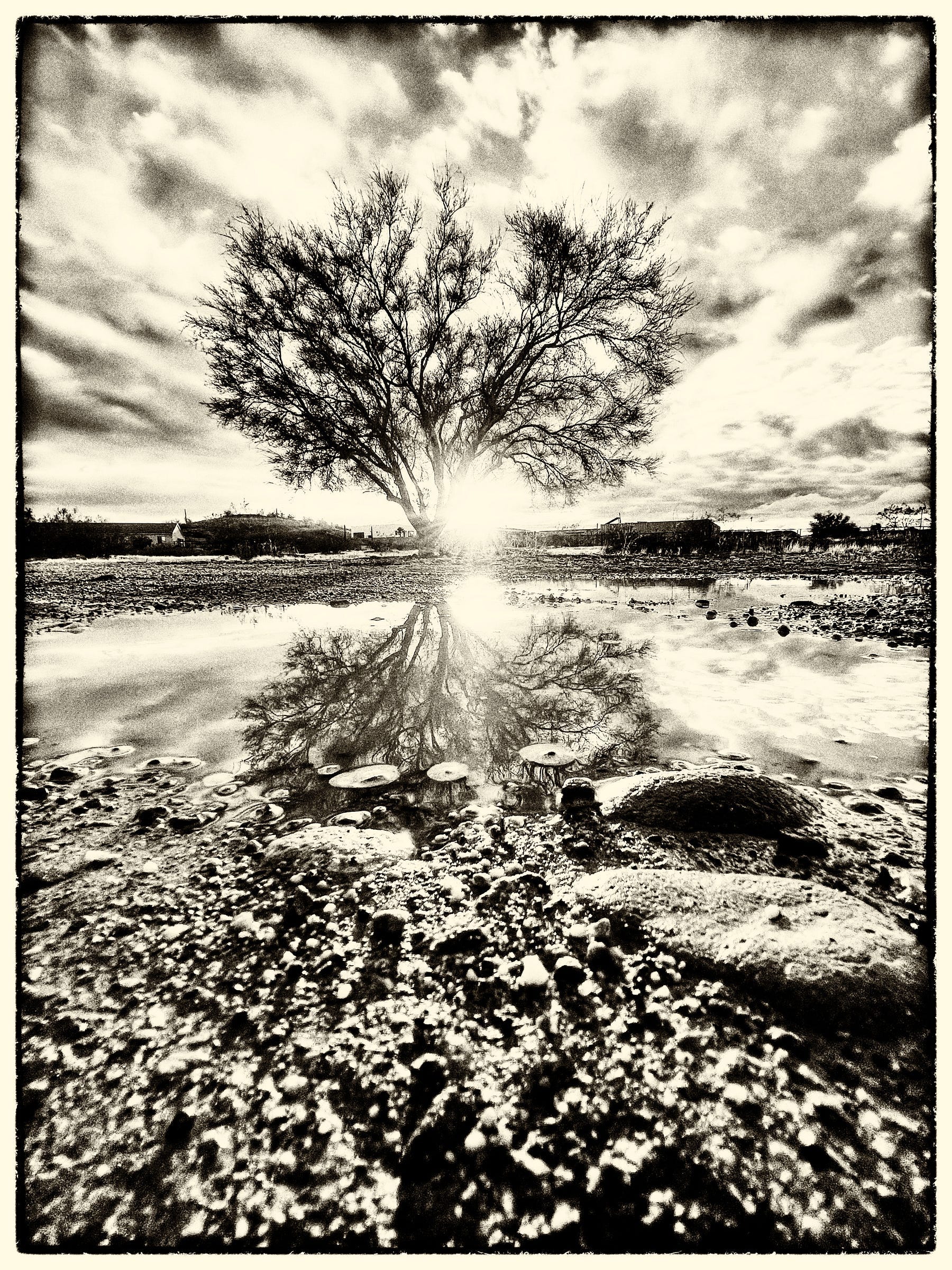Have You Ever Stopped Yourself From Taking a Photograph Because of What Someone Else Would Say?
Self-censorship is not the way to build your own style.
Ever stopped yourself from taking a photograph? And then thought later, “I should have taken that shot!"
There are excuses and reasons abound for not taking a photograph that presents itself to you.
Not the right time Not the right lens. Not exactly what I had in mind. Not as good as that shot I saw by that photographer I like so much. This is not a photograph in my style. I can't use it in my portfolio.
I have heard them all. And I have said all of them to myself earlier in my career.
And they seem, on the surface, to be somewhat valid, if not a little lame. But I also think that there is a certain amount of fear associated with the reasons and excuses stated above.
A fear that we bring to our work through years and years of self-censorship. A fear of failing, or not measuring up.
A fear that somehow taking a photo that will not go in your portfolio is wasted or silly — there are so many fears disguised as reasons. Reasons are fine; irrational fears are not.
Let’s examine that a little.
Fear of making a bad shot:
First of all, I don’t believe that failing is a bad thing. On the contrary, a failed shot teaches us so much more about what we need to work on.
It shines a light on the areas we are lacking in. It is a triumph over the untaken image because it simply exists, while the image not taken is lost. Forever. It is unable to teach us anything.
I see it in the workshops occasionally. A photographer won't take a shot because he/she cannot see beyond what they miscalculated.
They see the shot on the screen and begin to analyze it within the constraints of failure instead of the joy of learning.
Looking at the image as it starts to come together is a truly marvelous tool, but judging the image as to its worthiness from a single snap is unwise.
That failed shot shows you where to go next — tighter, move back, zoom a bit, change the angle, have her smile, move her hips, bring in the fill card a little more — it isn't a failure. It is actually a roadmap to success if it is studied and dissected.
And that goes as well for entire shoots. If things didn’t go well, analyze and correct.
Fix it next time. Dwelling on that failure only makes it bigger than it ultimately is. It isn’t the end of anything.
It is the journey of photography and the discovery of our own talent that is beginning. Acknowledge it, learn from it, move on.
Becoming good at the art of photography is not an easy process, no matter what you read on blogs or forums. It takes time and consistent effort. It takes perseverance.
The fear of not getting something totally right, not “measuring up” to something or someone you are emulating should never be a reason for not taking the shot.
You want it to be your shot anyway. Make your shot — work it until you cannot conceive of another way of shooting it.
Then shoot it a little more just to be sure.
I have seen photographers shoot something with a few clicks and walk away without pushing anything of themselves into the shot.
Don’t be afraid to challenge yourself, your subject, the location, or the gear. Make yourself do what you want to try.
You could fail (see above) or something truly unique and exciting can be achieved.
Too often, it is an unreasonable fear that someone somewhere will make a disparaging comment on the image.
The fear that the image will be torn apart by Instagrammers, or someone on another forum somewhere. And, heck, it may be.
But so what? You took it, you like it, it means something to you, and it may lead to more images that are better. Making a photograph is taking action, criticism is not.
Let it go — make the images for you, not other people who may or may not be even worthy to criticize your image.
And keep in mind that not everyone everywhere likes your kids… ya know. As long as you do, all is well in the world.
When is the right time to make the photograph?
When is the time you have?
With the lens you have, the gear you have, and the place you have to do it.
Right now, with the camera you have with you.
iPhone, P&S, D750… whatever you have, when you have the shot in front of you.
Too many times I hear that the photographer "would've" done the shot, but they were waiting for a sunny day or a cloudy day or the weekend or when they would have more time or after their favorite TV show is over or a litany of “reasons”
Bull.
You didn’t take the shot because you were afraid it wouldn’t be that magical time when you would only have to control those things that weren’t already perfect.
You wanted a blue sky, on a weekend, when the only model you want to shoot is available, and you would have all day to work on it and the location was a beach in that about right?
All you would have to do is set up your beauty light. Ahhh…
Well, I hate to burst your bubble, buddy, but that ain’t never gonna happen.
And you know it. You really do, but instead, choose to blame all those things on the reason you don’t photograph.
If those things are keeping you from making images, you may be more of a hobbyist than you thought.
And that’s OK, it really is.
It wouldn’t be right for my portfolio.
I hear this all the time. From photographers I meet and work with to students at the workshop to that little voice that used to chat in my mind when the cameras were out.
And this particular one is a doozy of an excuse — I can’t use it in my portfolio.
Does that really matter?
Are you a photographer or a “portfolio constructionist?
Do you love and revel in making images, or are you simply trying to get some pictures together so you can go out and show them a couple of times and then get rich shooting only the stuff that you know will go in your portfolio?
Oh, I got some bad news for you. That just isn’t the way it works. This is not a business you go into to become rich.
Do you want to be rich? Go into banking or get elected to Congress.
Photography is a lifestyle choice that is made because you simply want to do it more than anything else. (If you are not driven to photography, the business will drive you out of it quickly.)
Shooting for your book is always important, but not shooting something that potentially will not go in your book is not the way to go.
Making photographs of the family dog, or that cool sunset, or the way the ketchup bottle makes a shadow on the lunch counter—all that stuff is your vision at play. It is simply what it is — a photograph of a ketchup bottle shadow on a Formica counter.
It could suck. Or it could be magical.
Someday you may be working on a still-life shot, or a portrait, or anything, and struggling with some aspect of it. The ketchup shadow shot may pop forward in your mind’s eye, and it may be just the catalyst you need to work through the shot at hand.
To me, being a photographer means freedom.
No 9–5 for me (more like 5 AM to a little north of midnight sometimes).
No cubicle, no parking space. Take Wednesdays off to hit a movie or travel — whatever.
It also means the freedom to simply make an image of a shadow, or a wall, or the way the light bounces off a child’s hair. It is all good.
Those shots may never be in my portfolio, but I have them, and they are mine. My vision of something that happened for a split second one day in my life.
Captured.
Without taking that shot, they would be lost. I prefer to keep than lose.
I used to hear that voice, “Nope, not a portfolio shot“, but I vanquished him when I realized that it was far more fun to make a photograph than to not make a photograph.
NOTE: Family and friends may get on your case about always having your camera out and making photographs. Let them. They don’t understand why you want, need, must take photographs.
And that is OK, really it is.
They aren’t photographers; you are.
When you are ready, here is how I can help you succeed.
Group Mentorship: a small group of photographers who meet to show images, work on their portfolio, and build their businesses with help from a wonderful group. Lifetime membership for one fee.
One-on-one Mentorship: You and me - working together in an intense 6-month push to get you on the way to over $30K in additional revenue. The work we lay down will help you increase and scale your business for years ahead.
The Creative Class: Expand your toolset and become a one-person visual agency capable of pulling in steady and repeated income. If you have questions, let me know, and I will answer them as fast as possible.
Discount codes for In the Framers:
Cohort Discount $197: $1000 | A23CD7E72E
Creator Discount: $100: $197 | 2BA98E4053








As a USAF combat photographer, my tour in Vietnam was to capture and document events that were taking and had taken place. I’ve seen things I can’t unsee, yet I did my job and continued. After my return, I was back home, upon hearing a loud explosion I looked over the patio fence, I observed a vehicle on fire. I grabbed my camera from the shelf and ran towards the fire. I immediately started documenting the scene, after getting closer to the other side of the vehicle, I noted a body on the ground and other behind the driver’s wheel. It was then that I felt something inside telling me what was I doing? I was shooting exposures of a tragic rear ended vehicle accident, with two fatalities. At the moment, I wasn’t experiencing any emotions, later after my adrenaline dump, I felt callous in my actions. Maybe, instead of grabbing my camera I could’ve run out there to assist in any way I could instead of photographing the accident. I did some deep soul searching and decided to become a firefighter, 30 years later as a retired firefighter I feel I made the right choice. I still have a camera nearby but choose to capture things of an abstract nature.